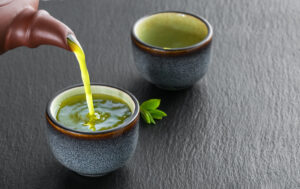How much do you know about tea?
Why do most people prefer tea over any other beverage?
Is tea consumption a healthy indicator of longevity?
Let’s find out what the secrets are.
Tea is the most popular beverage in the world, with annual consumption averaging over 5 million tons, and it appears that this trend will continue over the next decade. Nowadays, tea consumption is considered regardless of socioeconomic status or ethnic background, resulting in the production and consumption of numerous types of tea, such as green tea, oolong tea, black tea, and so on.
In addition to its scent and flavor, which are its most distinguishing characteristics, tea also contains “polyphenols, polyphenolic contents or phenolic acids,” which are responsible for a wide range of physiological and pharmacological effects on human health. In recent years, however, experiments and clinical studies have uncovered deeper interrelationships between bioactive ingredient-rich beverages like tea, anti-cellular senescence (anti-cellular aging), immunosurveillance, and even probiotics bring about a variety of preventive and therapeutic health benefits.
Plus, there are several facets of cellular aging for which scientists are eager to do additional research in order to provide a comprehensive understanding of the healthy aging potential of tea use.
Tea phytochemistry, bioactivity, and pharmacokinetics

- Tea is not only a rich source of varied classes of phytochemicals that contribute to its exceptional flavor, but it also contains a high concentration of antioxidants. A steady consumption can enhance circulating antioxidant levels and improve human health markers.
- Approximately 30–40% of the dry weight of green tea is comprised of polyphenols, especially flavonoids. However, this depends on the tea cultivar, climate, leaf, and flushing seasons. As a result of their enhanced antioxidant activity, flavonoids with high concentrations appear to have more health benefits and pharmacological effects.
- It has been demonstrated that polyphenols have strong immunostimulatory, anti-inflammatory, anti-cancerous, anti-bacterial, and antiviral properties. In fact, some studies indicate that tea phenols may also provide protection against SAR-CoV-2 virus.
- Several clinical evidences have shown that these components are likely to reduce the risk of chronic human disorders such as diabetes, obesity, cardiovascular disease, arthritis, metabolic syndrome, and respiratory infections.
- Small phenolic particles are finally distributed to various tissues and organs, where they support their biological actions before crossing the blood-brain barrier to provide neuroprotection against age-related neurodegenerative disorders.
- Tea components can be expressed in humans using nanoparticles that improve their intestinal absorption.
“As we age, the time-dependent accumulation of cellular damage or cellular senescence that is natural in mammalian cells reaches its peak. In addition, they will eventually lose their ability to replicate, cease proliferation, and undergo a stable and permanent cell cycle arrest. Consequently, decreased immune system function can lead to ineffective immune-mediated clearance of senescent cells, resulting in their gradual accumulation over time.”
Tea, organismal aging, and cellular senescence

- Habitual tea drinkers have a reduced risk of atherosclerotic cardiovascular disease, diabetic complications, and all-cause mortality, resulting in lifespan extension.
- Using green tea extracts to rinse the mouth can greatly reduce the incidence of influenza in the elderly.
- Some herbal tea supplements minimize oxidative stress and fat deposition in tissues and promote behavioral mobility, ultimately extending the human lifespan.
- Tea polyphenols could be useful in developing potential anti-cellular senescence strategies and as a strong suppressor of stress-induced induction of cellular senescence.
- Tea extracts protect skin cells from UVB-induced premature senescence by attenuating cell damage and inflammatory response.
- Tea drinking prevents the accumulation of senescent cells by reducing DNA damage and the expression of cell cycle inhibitors.
- Tea’s major constituents can lessen antioxidant capacity-induced brain senescence, improve longevity, and delay the onset of replicative cellular senescence.
Tea and the aging immune system

- Tea consumption can suppress inflammation and enhance the proliferation of white blood cells in the blood circulation.
- The major compounds of tea increase immunological and white blood cell function and have been implicated in protection against systemic low-grade chronic inflammation and age-related inflammatory diseases in the elderly. Besides, the spread of cancer cells appears to be slowed.
Tea and the gut microorganisms during aging

- Metabolites derived from medicinal plants like tea are emerging as novel prebiotic agents that can stimulate the growth of gut bacteria while inhibiting the growth of pathogens.
- The microorganisms in the gut are capable of fermenting dietary polyphenols, so inducing qualitative and quantitative changes in the polyphenol profile that could be even more healthful.
- The anti-aging effects of tea could be related to the suppression of gut dysbiosis (the imbalance of gut microbiota associated with an unhealthy outcome) and the maintenance of the intestinal gut barrier.
Something you should know more about tea.

Tea preparation methods vary significantly across population groups based on race and ethnicity. Changes in tea preparation have been shown to affect the quantities of polyphenols and other bioactive components. Ultimately, it may affect the biological effectiveness of tea and its potential health benefits. Multiple studies have demonstrated that brewing green tea for 5-7 minutes is optimal and most likely to yield a higher polyphenolic content. However, cold water brewing could be more effective than hot water brewing in preserving the polyphenolic content of tea leaves.
How frequently should you drink tea ?

According to clinical studies, consuming ≥ 3 cups of tea daily is correlated with improved cardiovascular health, diabetes, metabolic syndrome, and longevity.
Tea consumption on a daily basis should be encouraged since a chronic dose of bioactive molecules in tea can better delay or alleviate the onset of cellular damage, thus preventing the age-related accumulation of senescent cells.
Among the different types of tea available, unfermented whole-leaf green tea is recommended due to its high polyphenol content and superior biological effects. Last but not least, the polyphenolic content in a tea leaf is also dependent upon the type of cultivar and seasonal variation.
Tea as a beverage may be able to be developed as a viable source of anti-cellular senescence because of the presence of desirable ingredients, global acceptance, the requisite supporting scientific logic, and preliminary data. Keep in mind that excessive tea intake could be harmful due to tea-induced hepatotoxicity (liver toxicity) and acute increase in blood pressure.

“A healthy outside starts from the inside.” – Robert Urich

